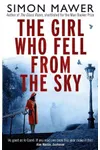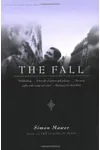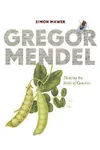Picture a British storyteller weaving tales from a sunlit villa in Italy, blending science, history, and human drama—meet Simon Mawer! This zoologist-turned-novelist has captivated readers with his emotionally rich and intellectually vibrant stories, from the award-winning Chimera to the Booker-shortlisted The Glass Room. With a knack for turning complex ideas into page-turners, Mawer’s work is a treasure trove for curious minds.
Born in England in 1948, Mawer’s nomadic childhood across Cyprus, Malta, and various RAF stations sparked a lifelong fascination with difference and displacement. This unique perspective infuses his novels with a sense of place and longing, making him a standout in contemporary literature.
The Making of Simon Mawer
Raised in a world of constant movement, Simon Mawer’s early years were anything but ordinary. His father’s RAF career took the family from dusty Cypriot airfields to the Mediterranean shores of Malta, shaping a young Mawer’s sense of adventure. He studied zoology at Oxford’s Brasenose College, later settling in Rome to teach biology at St. George’s British International School. It wasn’t until his forties that Mawer turned to writing, debuting with Chimera in 1989—a novel that won the McKitterick Prize and marked the start of a remarkable literary journey.
Simon Mawer’s Unforgettable Stories
Mawer’s novels are a masterclass in blending science, history, and human emotion. His debut, Chimera, explores identity and deception with a biologist’s precision, setting the stage for his distinctive style. Mendel’s Dwarf (1997), a witty and poignant tale of a geneticist with achondroplasia, earned acclaim as a New York Times “Book to Remember” and was long-listed for the Man Booker Prize. The novel’s dual narrative, intertwining the protagonist’s life with Gregor Mendel’s, showcases Mawer’s ability to weave intellectual depth with emotional resonance.
The Glass Room (2009), perhaps his most celebrated work, is a haunting historical novel set in a modernist Czech villa during the tumult of the 20th century. Shortlisted for the Man Booker Prize, it’s a testament to Mawer’s lyrical prose and knack for capturing the fragility of human dreams. His Marian Sutro series, starting with Trapeze (2012, also published as The Girl Who Fell from the Sky), follows a young WWII spy, blending espionage with coming-of-age themes. Its sequel, Tightrope (2015), won the Walter Scott Prize for historical fiction, cementing Mawer’s reputation for thrilling yet thoughtful storytelling.
Mawer’s writing is marked by a scientist’s curiosity and a poet’s grace. His themes—identity, memory, and the intersection of science and morality—resonate across genres, making his work both accessible and profound. Whether exploring the genetics of dwarfism or the espionage of wartime Europe, Mawer crafts narratives that linger long after the final page.
Why Simon Mawer Matters
Simon Mawer’s impact lies in his ability to make complex ideas feel deeply human. His novels bridge the gap between science and literature, inviting readers to ponder big questions through intimate stories. From the classrooms of Rome to the global literary stage, Mawer has inspired a dedicated following, earning praise for his “lyrical, playful, and precise” prose. His work challenges readers to see the world anew, blending historical insight with universal truths about love, loss, and resilience.
By tackling diverse settings—from WWII Europe to 19th-century genetics—Mawer has carved a unique niche in historical and literary fiction. His ability to evoke place, whether a Cypriot airfield or a Czech villa, makes his stories immersive and unforgettable, ensuring his legacy as a writer who speaks to both the mind and the heart.
- Born: 1948, England
- Key Works: Chimera, Mendel’s Dwarf, The Glass Room, Trapeze, Tightrope
- Awards: McKitterick Prize (1989), Walter Scott Prize (2016), Man Booker Prize shortlist (2009)
- Lives: Rome, Italy, and Hastings, UK
Snag The Glass Room or Trapeze and dive into Simon Mawer’s spellbinding world of history, science, and heart-stirring drama!














